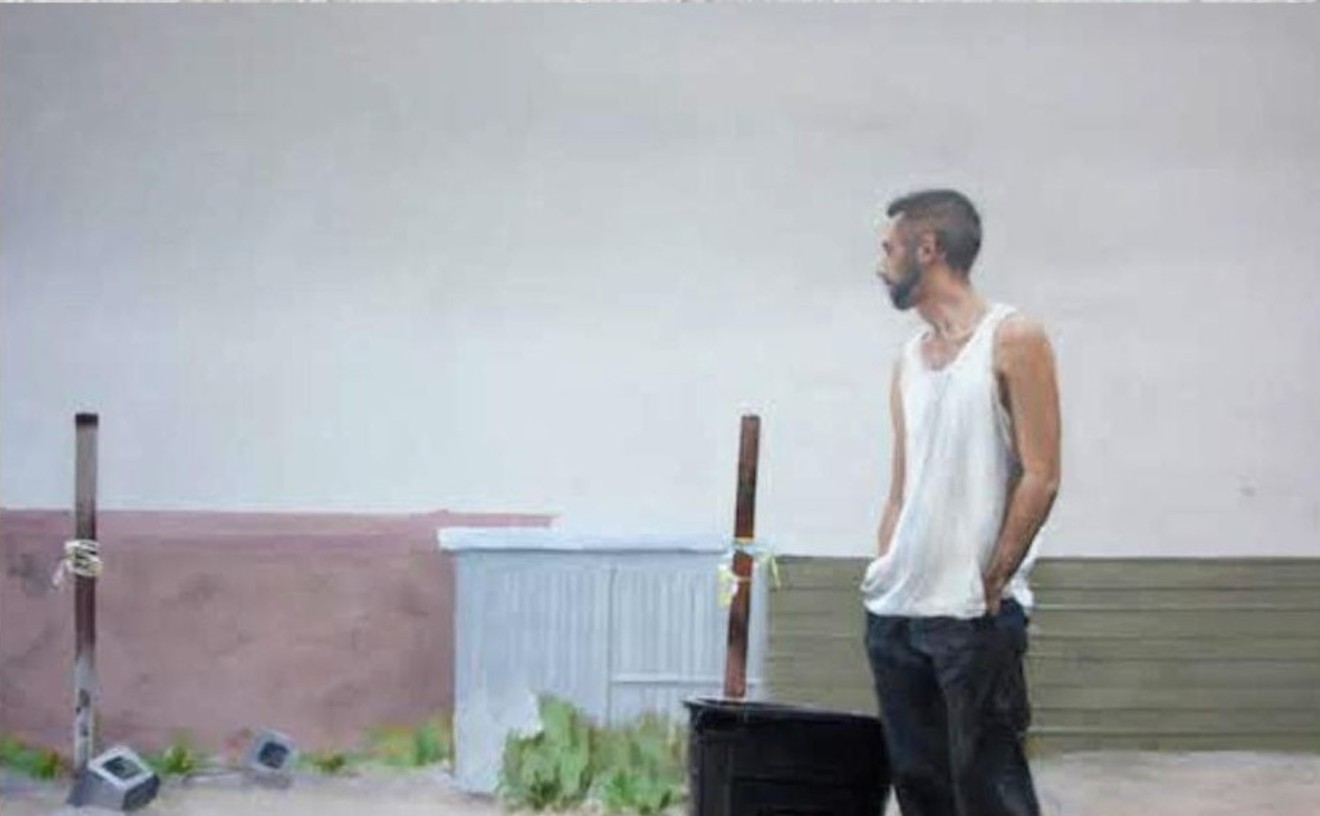The show is the stage adaptation of Robert Fulghum's immensely popular All I Really Need to Know I Learned in Kindergarten!, a collection of nonfiction essays that dominated the best-seller lists for more than a year. I must be the only person in America who has not read the book, which is the sort of literary companion thoughtful hosts provide near the crapper.
If you are a fan of Garrison Keillor, Kahlil Gibran or Rod McKuen, you will love this show. It's already a big hit with the subscription crowd, and seats will be hard to come by.
In a program note, the author enumerates the following principles: "I believe that imagination is stronger than knowledge, that myth is more potent than history, that dreams are more powerful than facts, that hope always triumphs over experience, that laughter is the only cure for grief, and I believe that love is stronger than death."
If this credo doesn't make you gag, you may be scintillated by the ersatz saws that enrich this fruitcake of homilies. Originally developed by Mill Mountain Theatre of Roanoke, Virginia, by director (and adaptor) Ernest Zulia, All I Really Need to Know puts onstage an olio of anecdotes, acted out by an engaging troupe of four performers, a piano player and an amplified, disembodied offstage voice. For all its tongue-in-cheek self-parody, the title (All I Really Need to Know) is meant to be taken literally, and we are quickly induced to join composer-pianist David Caldwell in a rousing round of "Row, Row, Row Your Boat" and "Three Blind Mice." As to what it was we learned in kindergarten, it is soon spelled out: "Share. Play fair. Don't hit people. Don't take things that don't belong to you. If you hurt someone, say you're sorry. Clean up your own mess. Wash your hands before you eat. Hold hands and stick together when you cross the street. Flush."
The author's premise is that we have forgotten these lessons, and he is all too happy to remind us of them. One of the most winning stories is that of Norman, a shy child who undertakes the part of the pig in the Cinderella story. When told there is no pig in Cinderella, he responds: "There is now!" Naturally, his dancing, barking pig becomes the star of the children's show.
Interlaced with such disarming sketches are pathos-laden sermonettes, like the story of Charles Boyer, the famous film star, who loved his wife, Patricia, for 44 years, until she succumbed to cancer. He then killed himself. We are invited to wonder at the power of such a love.
We are told the tale of Larry Walters, a truck driver who dreams of flying. There is an homage to Beethoven, who overcame his deafness to give us an ode to joy, and the tale of a deaf boy who contracts to rake his neighbor's leaves. There's the saga of a teenager's summer job at the Feather River Inn, where wieners and sauerkraut are served as daily fare. When the cost of his meals is deducted from his wages, the teen's rages are calmed by the night auditor, a Holocaust survivor, who reminds him: "There is a difference between an inconvenience and a problem."
Too long by half an hour, this entertainment benefits from a sassy, lighthearted staging that is both inventive and swift. The chief virtue is the winsome quartet of actors, sort of a Valley all-star ensemble led by the incomparable Bob Sorenson. Although a slight hesitancy with lines suggested some of the actors will be smoother in future performance, Sorenson scores a triumph with his impeccable timing. The showstopper is Sorenson's sidesplitting vignette of a wedding gone awry. Narrating and acting all the parts, Sorenson depicts the wedding from hell. He unfurls a white carpet that dissects the stage, and primly places a chair to one side of the aisle for the mother of the bride, the overlord of this particular universe. Marching us through the entire ceremony (the pageantry of the mother's entrance, the swaggering groom and his buddies, the prancing flower children and the dwarflike ringbearers), Sorenson builds his audience to a state of breathless anticipation for the entrance of the bride. Having nervously filled the backstage delay by stuffing herself on hors d'oeuvres, the bride finally appears with an ashen face that upstages the whiteness of her gown. The mess that ensues is too good a story to spoil by telling it here; you have to get it from Sorenson's mouth, like the rest of the wedding guests. It is as funny as it is gross.
The cast is engaging: Sylvia Amundsen, Larry Soller and Fred Sugerman charm us with their versatility, and each is capable of casting a spell while spinning a tale.
The set design by Jeff Thomson is an azure raked wedge that angles up to a blue wall with a window, which wittily changes to expand the scene, even while it underlines the simplicity of the design. The acting area is surrounded by violet side walls that simultaneously box us into a classroom while opening the action up to a sky of possibilities, in colors you will remember from your Crayola box. There is a lot of fun to be had in Kindergarten, but for the ride, you will be charged the price of moral nuggets like: "I see God through the same eye that God sees me.










